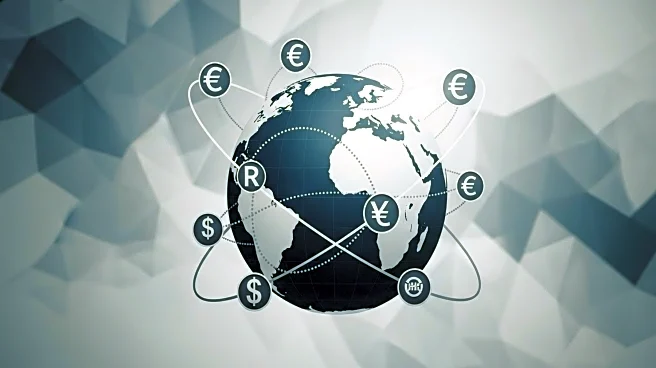What's Happening?
The African Growth and Opportunity Act (AGOA), a key trade agreement between the U.S. and 32 African nations, is set to expire next week. AGOA, established 25 years ago, allows eligible African countries to export goods to the U.S. tariff-free, promoting economic development and job creation. The act has been instrumental in boosting industries in countries like Kenya and Lesotho. However, its renewal is uncertain, raising concerns about the future of U.S.-Africa trade relations and the economic impact on African nations that have benefited from the agreement.
Why It's Important?
The expiration of AGOA could have significant economic and political implications. For African countries, the loss of tariff-free access to the U.S. market could hinder economic growth and job creation, affecting industries that have thrived under the agreement. Politically, AGOA has strengthened U.S.-Africa relations, and its expiry could weaken these ties, especially amid growing geopolitical competition with countries like China. The act's renewal is crucial for maintaining the U.S.'s influence and fostering economic partnerships with Africa, a continent poised for significant demographic and economic growth.
What's Next?
The U.S. faces a decision on whether to renew AGOA, with potential consequences for trade and diplomatic relations with Africa. If the act is not renewed, African countries may seek alternative trade partnerships, potentially shifting alliances and economic dependencies. The U.S. may need to explore new strategies to engage with Africa, balancing trade interests with geopolitical considerations. Stakeholders, including African governments and U.S. policymakers, will likely engage in discussions to address the future of AGOA and its role in U.S.-Africa relations.
Beyond the Headlines
The expiration of AGOA highlights broader issues in international trade and development policy. It raises questions about the effectiveness of unilateral trade concessions and the need for more comprehensive agreements that address the complexities of global trade. The situation underscores the importance of strategic partnerships in a rapidly changing geopolitical landscape, where economic ties can influence political alliances and global power dynamics.










